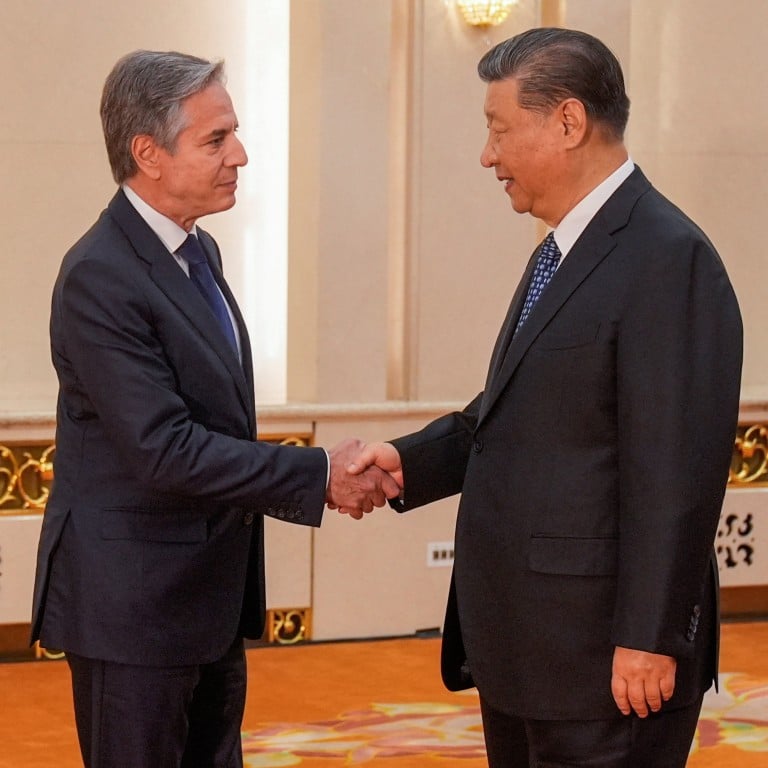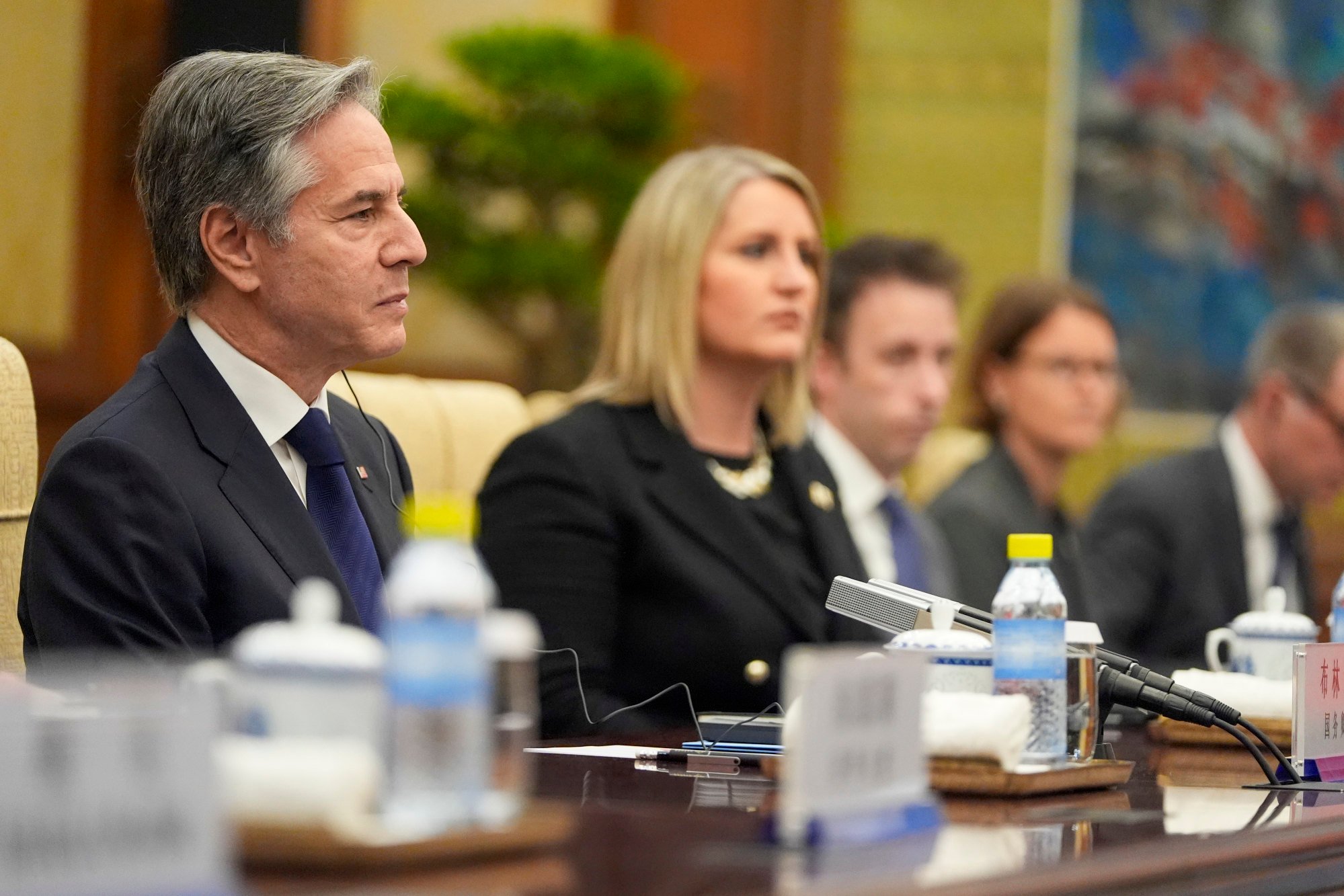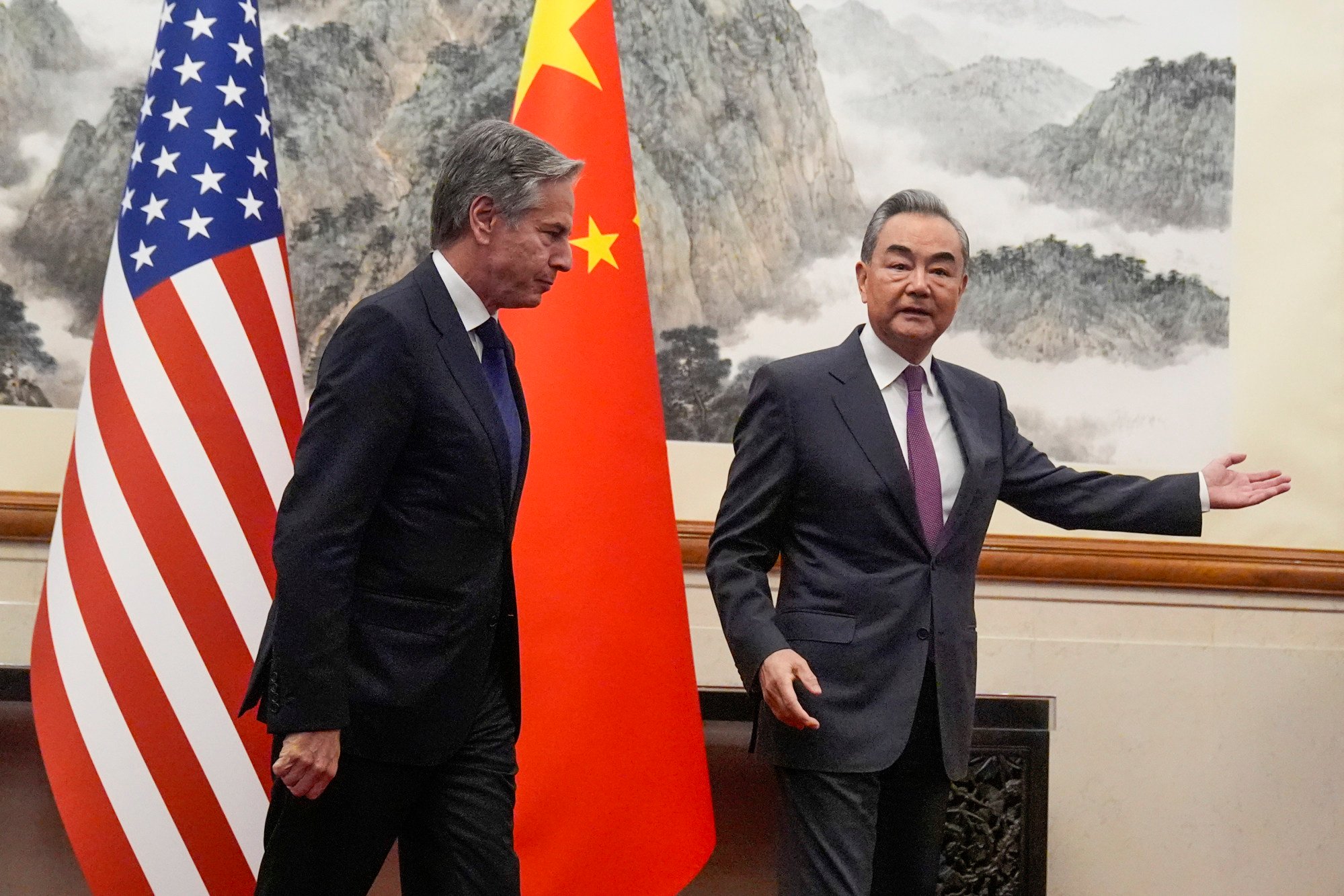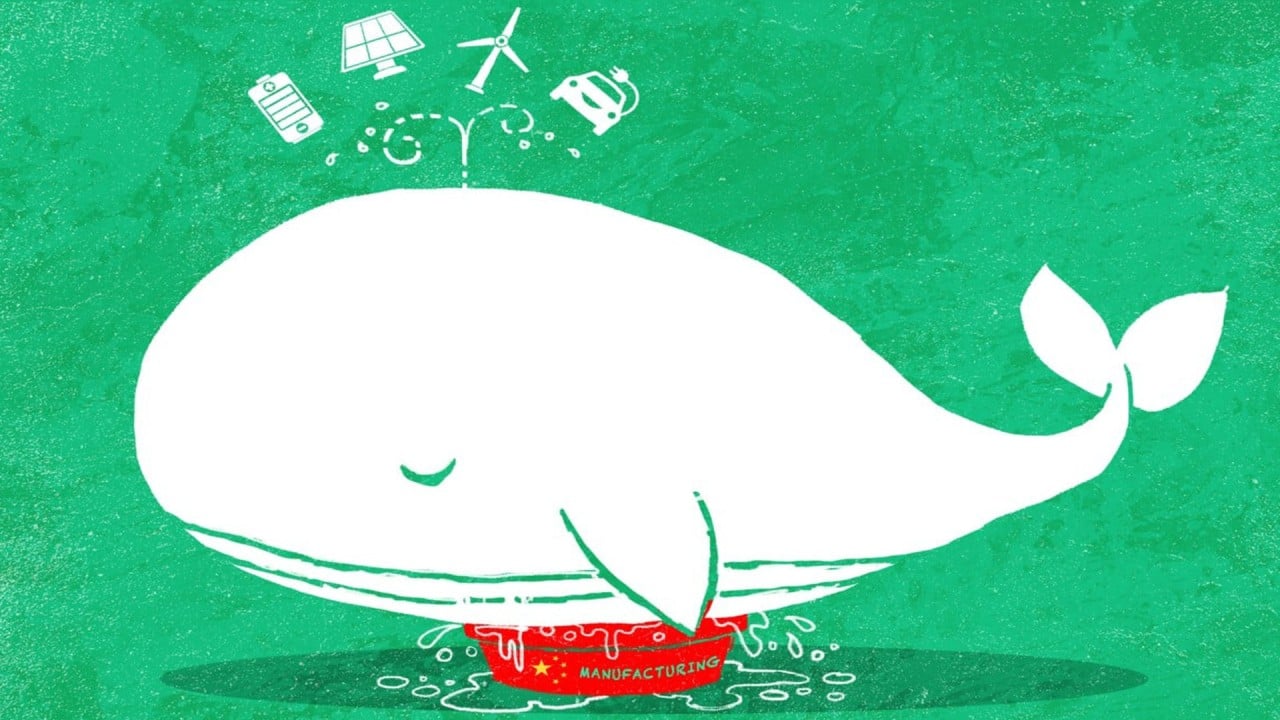
US-China relations: Xi tells Blinken America cannot ‘say one thing and do another’
- Chinese President Xi Jinping urges the US to view China’s development positively so bilateral relations could be stabilised
- China-US ties are more stable but still at risk if ‘red lines’ are crossed, China’s Foreign Minister Wang Yi tells US Secretary of State Antony Blinken during talks on Friday
Blinken, in turn, expressed concerns about China’s supply of goods that could have military uses to Russia and its alleged manufacturing overcapacity.
The two countries agreed to continue high-level engagement, including talks in the next few weeks on artificial intelligence, but appeared to have made little progress on the most challenging issues as Blinken wrapped up his three-day trip.
Xi warned Washington not to form “small blocs” against China and said relations could only stabilise and move forward if the US viewed China’s development positively.
“This year marks the 45th anniversary of the establishment of diplomatic relations between China and the United States … the two countries should be partners, not rivals; they should achieve mutual success, not harm each other; they should seek common ground while reserving differences instead of vicious competition; they should be true to their words and be resolute in deeds, rather than saying one thing and doing another,” he said, according to a report by state broadcaster CCTV.

“I have said many times that the Earth is big enough for China and the United States to develop together and prosper independently. China would like to see a confident, open, prosperous and developing United States. We hope that the United States can also take a positive view of China’s development,” he said.
“China is willing to cooperate, but cooperation should be two-way … China insists on non-alignment, and the United States should not engage in ‘small blocs’. Both parties can have their own friends and partners, and should not target, oppose, and harm each other.”
Xi noted that the two countries had made some “positive progress” in various fields since his face-to-face meeting with US President Joe Biden in San Francisco in November, but said there was room for “further efforts” on problems that remained unresolved.
The visit was Blinken’s second trip to China in the space of a year amid growing worries that tensions between the two countries could escalate into conflict.
In a press conference following his meeting with Xi, Blinken said he raised concerns over China’s supply of dual-use goods – which have military and civilian uses – to Russia.
China’s increasing closeness to Russia in the wake of its invasion of Ukraine has heightened US distrust.
“In my discussions today, I reiterated our serious concern about the PRC [People’s Republic of China] providing components that are powering Russia’s brutal war of aggression against Ukraine,” he said.
The Wall Street Journal reported ahead of Blinken’s trip that the US may threaten to remove some Chinese banks from the global financial system if China does not curtail outflow of dual-use components to Russia.
Blinken told the press conference the US is “fully prepared” to take additional measures if “we don’t see a change”.
“I was extremely clear about our concerns, in some detail. We’ll have to see what actions follow from that. Now I think China has demonstrated in the past when it comes to Russia and Ukraine, that it can take positive action,” he said, referring to previous comments by Beijing warning against the use of nuclear weapons.
China has long opposed US “unilateral” sanctions, with around 100 Chinese entities being blacklisted, and criticised Western military and financial support for Ukraine as prolonging the conflict.
On Friday it urged the US not to “lay the blame” on China while it continues supporting Ukraine with large amounts of aid, which it said is “hypocritical and irresponsible”.

Earlier on Friday, Blinken met Chinese Foreign Minister Wang Yi, who warned the US not to cross any red lines on sovereignty, security or development.
Wang said ties had generally stabilised since Xi and Biden met in California in November, but “negative factors” were building, including an unreasonable suppression of China’s legitimate right to development and constant challenges to China’s core interests, according to the Chinese foreign ministry.
He said Beijing was committed to a stable, healthy and sustainable relationship, but “if the United States always regards China as its main rival, relations will only be troubled and full of problems”.
On Taiwan, Wang warned the US not to use the island as “a tool to contain China” and urged it to stop arming the island.
The aid package Biden approved for Ukraine also included US$8 billion funding for Taiwan.
Beijing sees Taiwan as part of its territory that must be reunited with the mainland, by force if necessary. The US, like most countries, does not recognise the island as independent, but is opposed to any attempt to take it by force and is legally bound to supply it with weapons.
He also criticised US activities in the Asia-Pacific, urging it to stop asking other countries to “pick a side” and halt the deployment of land-based medium-range missiles in the region.
The missiles were used last week in a joint military exercise with the Philippines, which has moved closer to the US after a series of clashes with China in disputed waters in the South China Sea.
Both Wang and Biden also referred to the heightened trade tensions between the two sides amid consistent complaints that Chinese overcapacity is flooding the US market and undercutting American firms.
This has prompted Biden to threaten more tariffs on Chinese metals and electric vehicles, while the US Trade Representative’s office has launched an investigation into Chinese shipbuilding, logistics and maritime companies under Section 301 of the 1974 Trade Act, which allows the office to investigate and respond to foreign trade practices that violate international agreements.
Putin to visit China in May as Moscow seeks to bolster Beijing ties
Wang called on the US to stop “hyping up the false narrative of China’s overcapacity theory, lift illegal sanctions on Chinese companies, and stop imposing Section 301 tariffs that violate WTO rules”.
Blinken said in his press conference: “We’ll do what’s necessary to ensure that American workers can compete on a level playing field. American actions are not aimed at holding back Chinese development, nor are we decoupling our economies.”
He said he also stressed the “critical” importance of “maintaining peace” in the Taiwan Strait and the “freedom of navigation” in the South China Sea.
The pair also discussed the situation in the Middle East, as Blinken urged China to use its influence on Iran and “its proxies” to stop the conflict from expanding.
He said he also voiced concerns over “the erosion of Hong Kong’s autonomy” and human rights issues in Tibet and Xinjiang, seen by China as internal affairs.
However, Blinken said TikTok did not feature in the discussions. Biden signed a bill into law on Wednesday that would force the short-video app to be divested from its Chinese parent company Bytedance or to face a ban in the US.
Blinken also met China’s Public Security Minister Wang Xiaohong, whom he thanked for helping to curb the fentanyl crisis in the US.
He later told the press that China has stepped up its efforts since November, but asked for further action, including prosecuting those who are selling chemicals and equipment used to make the drug.
The Chinese foreign ministry also said the two countries had agreed on further contact at all levels, including military-to-military communications, climate change and people-to-people exchanges.


 - Kawala Xie.jpg?itok=NogZcyZ-&v=1661304068)

